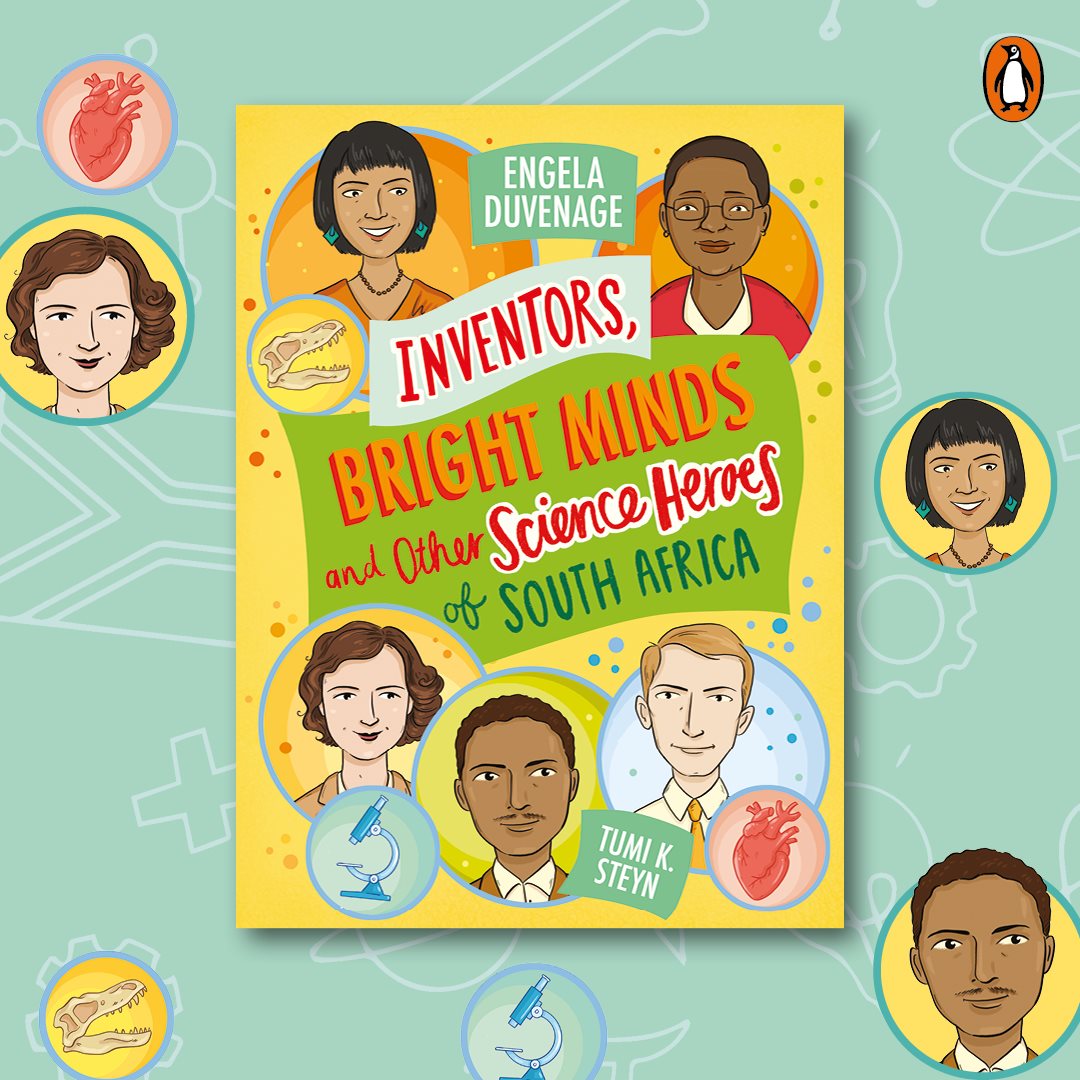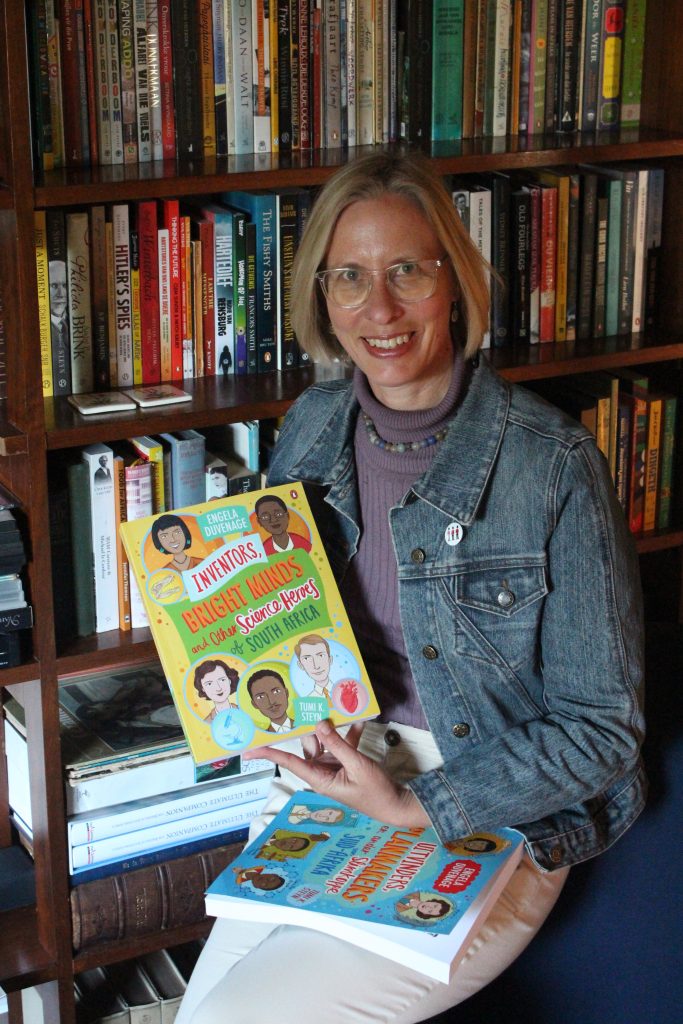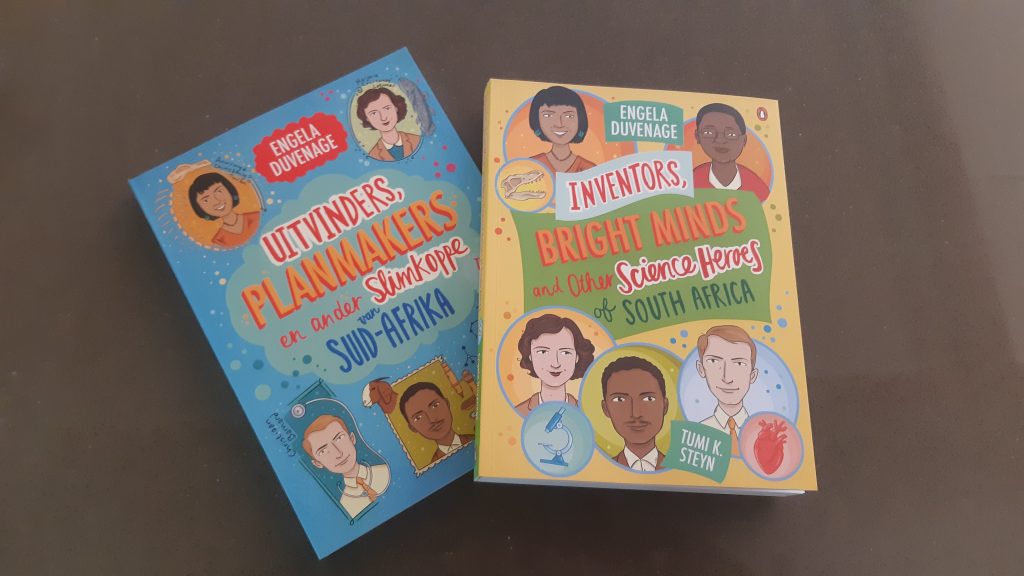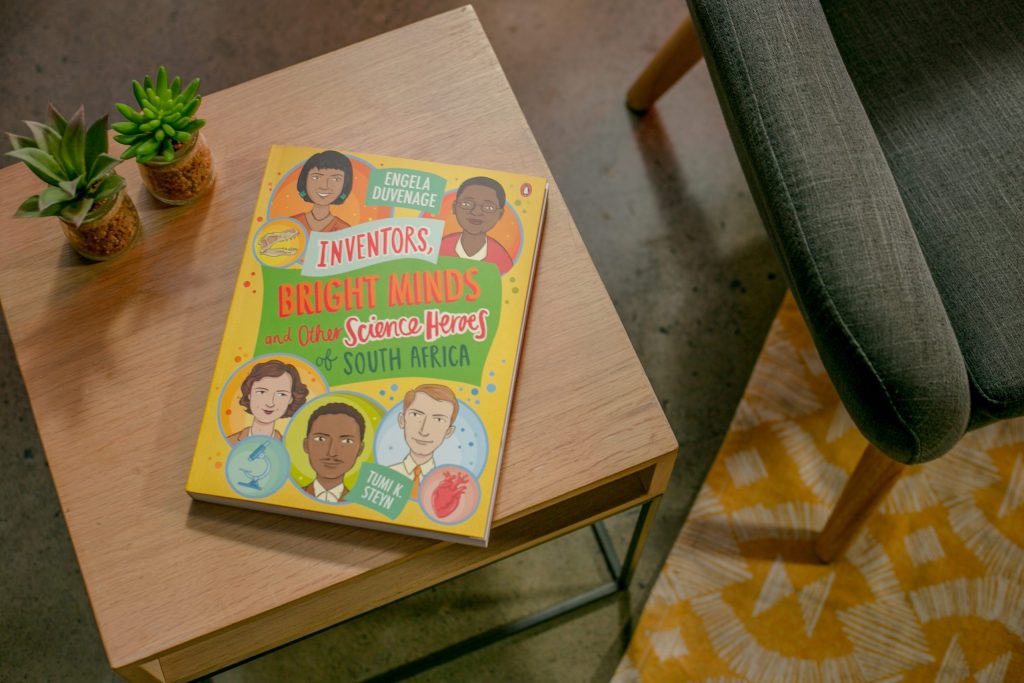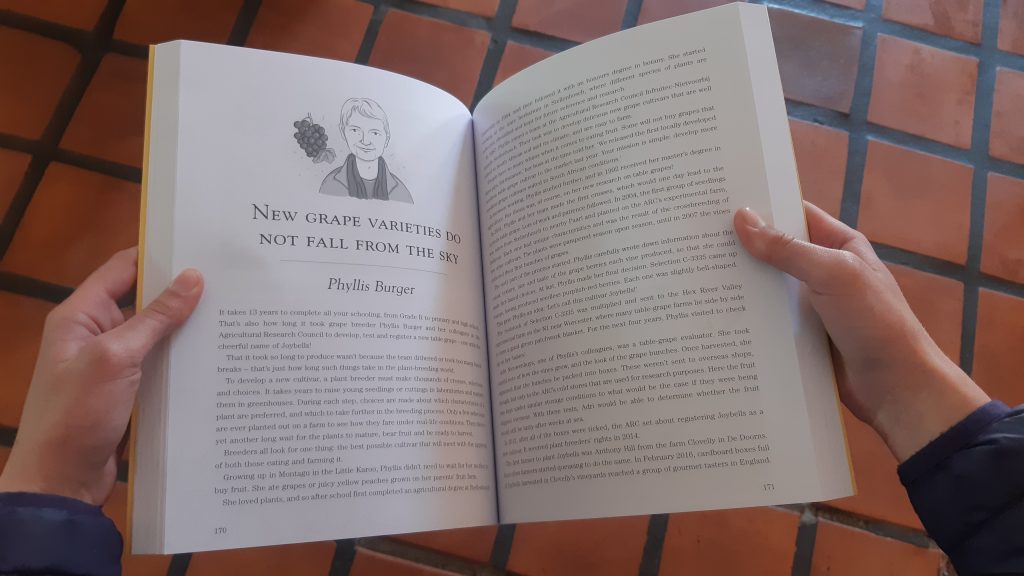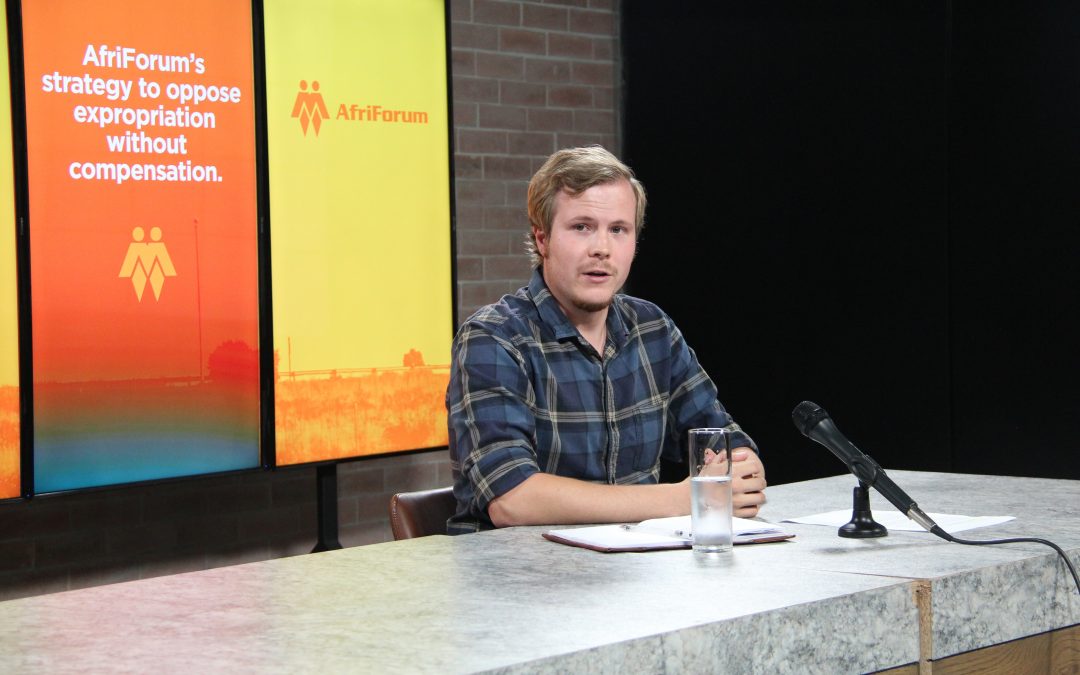Engela Duvenage recently chatted to Worldwide about her book Inventors, bright minds and other science heroes of South Africa.
The book contains 102 interesting stories about research and science.
Where does your love for science come from?
It is more a question of me loving information and enjoying knowing how the world and its parts work. I like knowing little bits of interesting information about many topics, rather than just focusing on one theme. I like “believe it or not” facts, the weird and the wonderful, and learning about the environment, plants, animals and history. A school friend once said that my brain is like a Chappie paper, filled with little snippets of information.
As a science writer and science journalist I have the privilege of working almost daily with researchers and other innovators who each, in their own way and in their own field, are trying to make the world a better place. I recon that their contribution, often made behind the scenes, are not recognised enough. Through my work I try to put their know how and findings into story form, so that it can reach a wider audience.
Inventors, Bright Minds and Other Science Heroes of South Africa was initially published in 2020 as Uitvinders, Planmakers en ander Slimkoppe van Suid-Afrika. Why did you publish it first in Afrikaans?
The long and short answer would be that an Afrikaans publisher (LAPA) was the first to say yes to the idea. I subsequently translated it when Penguin Random House wanted to publish it too.
Although I work in both English and Afrikaans, the latter is my mother tongue, and the language in which I sometimes write poetry and feel most creative in. It was therefore a privilege to have written it at first in Afrikaans, and then to tackle the English version. I also received some research funding from the “Suid-Afrikaanse Akademie vir Wetenskap en Kuns”.
Ideally, I’d love to see the book also published in other official South African languages, such as Zulu and Xhosa, but that’s not a translation job that I will be able to tackle myself.
This is such an insightful book, packed with facts and interesting stories. Are you sometimes scared that adults might enjoy it more than children do?
No, I’m actually quite excited to hear that it has already garnered quite a following among adults. Many people have already told me how surprises and proud they felt to read about the people of their country, about many they did not know about. And many grandfathers and grandmothers have already admitted to me that they thoroughly enjoyed reading through the book before giving it to their grandchildren as gifts! Adults (be they parents, grandparents or teachers) play an important role in storytelling, and in carrying over knowledge to our children. It would be great if they tell the many positive stories that the book contains to their children during the course of a day.
Do you hope to again create an inquisitive generation who find scientific facts interesting?
I already know that such a generation exists. There are so many children who are keenly interested in the world around them. I hope that the book helps them to keep on reading, and being interested in life beyond their screens. All children are not necessarily readers of fiction. They would rather read a non-fiction book. My books straddle a middle ground, as narrative non-fiction in which the stories about particular people are presented in story form rather than just basic facts. I also hope that some of the stories will pique children’s interest in specific careers or topics, such as that of haematologist or “blood doctor” (as per the story of Prof Johnny Mahlangu), geology (through the story of twins Richard and Morris Viljoen, or prospector Dr Hans Merensky), engineering (for instance through satellite builder Prof Herman Steyn’s story, or that of John Burland, who helped to save the Tower of Pisa from collapsing), or insects (such as mosquito expert Prof. Maureen Coetzee). And I hope that they realise that your passion or hobby can one day also become your job – even if it is spiders or earthworms, such as in the case of Dr Ansie Dippenaar-Schoeman and Dr Thembeka Nxele!
The books are selling extremely well. Did you expect such a positive reaction?
It was my heart’s desire to write these books – for my own children’s sake, but also for others – because I could not find a book of local science heroes for children. I am extremely glad about the positive reaction to the Afrikaans and English versions, and that people have been enjoying it as much as I’ve enjoyed researching and writing it. I must admit, I almost become teary every time I receive a video via Whatsapp of a young learner saying an oral based on information from my book. Then I know I’ve succeeded in introducing them to our local science heroes, or to specific topics. It is wonderful to hear how people have been reading it from cover to cover. It is also heartwarming to know that for two weeks this year, the Afrikaans version was among the Top 5 best-selling children’s books in South Africa (in the company of the likes of Peppa Pig, David Walliams and Harry Potter).
Which story do you find the most inspirational?
There are so many, and it is difficult to only chose one. I’ve learnt through the writing process that no one’s path to success was necessarily easy and that many had to face serious challenges, but that they managed to overcome it through their brainpower, tenacity, hard work and passion (and often also thanks to Lady Luck playing a role).
Would these books be helpful in school?
Absolutely. I have one child in primary school, and another in high school, and have over the years assisted them with school projects and orals. I’ve often wanted them to chose a South African science hero for a project, but could never find sources that are easy enough for them to use. With that in mind, I ensured that all of the stories contain enough facts so that they can be used for for instance an oral. Each story among others contain the particular person’s date of birth, where he or she went to school and studied, and other career highlights and prizes. Each story also contains explainer boxes of information, that adds to a particular topic. Many primary school teachers have already told me that they read from the book as enrichment, or in class when they tackle a particular theme. They would often then also Google the person, to find out more about him or her. One teacher from a rural school for instance tackled elephants as a theme during the term, and then read the story of elephant dentist Prof Gerhard Steenkamp to her class. High school teachers are using the book quite creatively when the have to teach their learners about transactional items such as CV writing, book reviews and how to write an in memoriam.
How do you identify a trendsetter?
I included people who all in their own way achieved some kind of first, for instance the world’s first heart transplant (Prof Christiaan Barnard) or the first 3D printed middle ear implant (prof. Mashudu Tshifularo), people who discovered new species of plants, animals or fossils (for instance plant fundi Elsie Esterhuysen and Dr Erns van Jaarsveld, fossil man John Nyaphuli or Prof. Savel Daniels, who discovered new species of crabs and velvet worms). or innovators who have brought us new things (such as Pippa Haarhoff, first manager of the West Coast Fossil Park, Dr Hendrik van der Bijl, who was the driving force behind Eskom and Sasol, Murendeni Mafumo who developed a new type of water filter, billionaire Elon Musk, and Chris Leatt, who developed a neck brace that motor cyclists wear for protection).
Is the books available overseas? We think our Worldwide friends will thoroughly enjoy it.
The books, each containing around 370 pages, each weigh about 2 kilograms. That’s hopefully not too heavy for Grandma or Grandpa to slip into their hand luggage when next they step on an aeroplane to go and visit! They can use the opportunity to read through this proudly South African present on their way there!
Buy the book here:
Electronic copies of “Inventors, Bright Minds and other Science Heroes of South Africa are also available, via Kindle, Snapplify and Google Play here.
The Afrikaans version can be bought for Kindle on Amazon here or to read through Snapplify here.
Book shops such as Graffiti Boeke says they will also gladly courier books overseas.
To get a sense of the narrative style that was used throughout the book, read an excerpt here:
English: Inventors, bright minds and other science heroes of South Africa by Engela Duvenage
Afrikaans: Onderhoud: Engela Duvenage, skrywer van Uitvinders, planmakers en ander slimkoppe van Suid-Afrika

